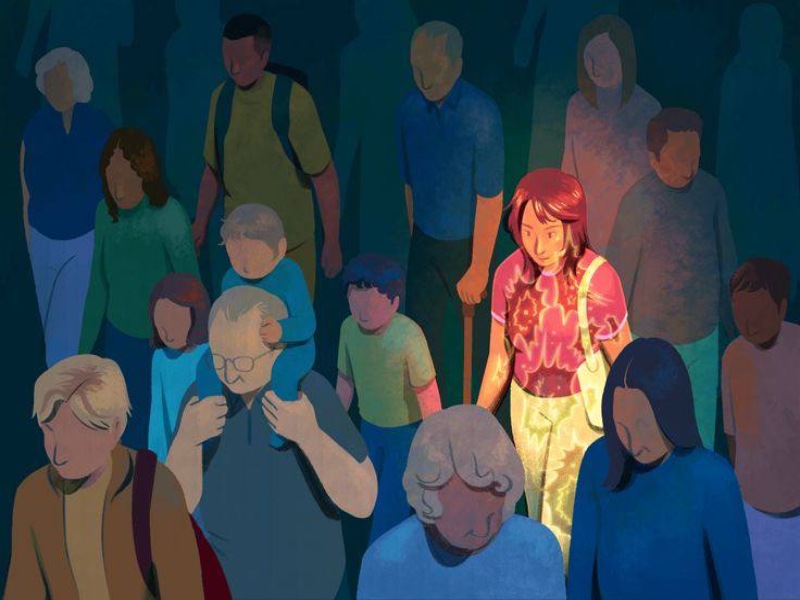Researchers looking for clues about why some types of cancer are on the rise in younger adults say they’ve found an exciting lead: a connection to accelerated biological aging. Aging is a major risk for many types of cancer.
This means that the older you get, the more likely you are to be diagnosed. Increasingly, experts recognize that age is more than just the number of candles on a birthday cake. Body wear and tear, caused by lifestyle, stress, and genetics, is sometimes known as a person’s biological age.
“We all know cancer is an aging disease. However, it is coming to a younger population. So whether we can use the well-developed concept of biological aging to apply that to the younger generation is an untouched area,” said Dr. Yin Cao.
Biological Age Was Used To Check the Algorithm for Cancer Diagnosis
Cao and her team examined the medical records of 148,724 people ages 37 to 54 who participate in an extensive data registry called the UK Biobank. They homed in on nine blood-based markers that have been shown to correlate with biological age.
The blood-based markers are albumin, creatinine, glucose, c-reactive protein, lymphocyte percent, mean cell volume, red cell distribution width, alkaline phosphatase, and white blood cell counts.
ALSO READ: A Faster Way To Detect Aging Cells
These nine values were then plugged into an algorithm called PhenoAge, which calculated each person’s biological age. The researchers determined accelerated aging by comparing people’s biological and chronological ages.

They then checked cancer registries to see how many in the group had been diagnosed with early cancers. They defined this as cancers appearing before age 55 and nearly 3,200 cancers diagnosed.
The researchers found that people born in 1965 or later were 17% more likely to show accelerated aging than those born from 1950 through 1954.
What Faster Aging Could Tell Us About Cancer Risk?
The researchers adjusted the data for factors they thought might bias their results. Then, they found that accelerated aging was associated with an increased risk for cancer. The strongest associations were seen with lung, stomach, intestinal, and uterine cancers.
Compared with people who had the smallest amount of faster aging in the biobank sample, those who scored highest had twice the risk of early-onset lung cancer. More than 60% are at a higher risk of a gastrointestinal tumor, and more than 80% are at a higher risk of uterine cancer.
A Way To Find Young People With a Risk of Cancer
Dr. Anne Blaes studies the impact of biological aging in cancer survivors at the University of Minnesota. He said the study results are exciting because they could point to a better way to find people who are at higher risk of getting cancer when they’re young.
Right now, young adults who don’t have a family history or other risk factors aren’t regularly screened for most kinds of cancer.
“We’re seeing more and more cancers, especially GI cancers and breast cancers, in younger individuals. And if we had a way of identifying who’s at higher risk for those, then really, you can imagine we’d be recommending screening at a different time,” said Blaes.
ALSO READ: 5 Ways Ozempic, Other Weight Loss Drugs May Improve Your Health
Blaes is a professor and director of the Division of Hematology and Oncology at UM Medical School. However, she was not involved in the new research.
A Faster Way To Detect Aging Cells
Blaes said it’s easy to find people at higher risk because their cells are aging faster. Also, you can target lifestyle interventions, such as nutrition, exercise, and sleep.

“There are medications that also look like they can slow down accelerated aging,” said Blaes, who is testing two of them in cancer survivors. Cancer survivors often show greater biological aging, perhaps because of the after-effects of therapies like chemotherapy and radiation.
The medications belong to a class called senolytics; drugs thought to target and eliminate damaged and aging cells. Right now, it’s not clear who might benefit from these drugs. Assessments of accelerated aging like PhenoAge could one day help doctors identify the people who most need them.
“It’s super interesting. It’s not quite prime time when we would go out and prescribe those medications for people. This is important work,” Blaes said.
You Might Also Like:
Trump’s Criminal Trial Is Days Away, Here’s Everything We Know About It
Get Beyoncé’s “Cowboy Carter” Vibes and Other Fashion Picks for Spring at Just $15
Neutrogena Announces Closing Its Los Angeles Office, Lays Off Staff
How Donald Trump’s Abortion Stances Have Shifted Over the Years
Christina Applegate Opens Up About Tearful Nights on Breast Cancer Journey
